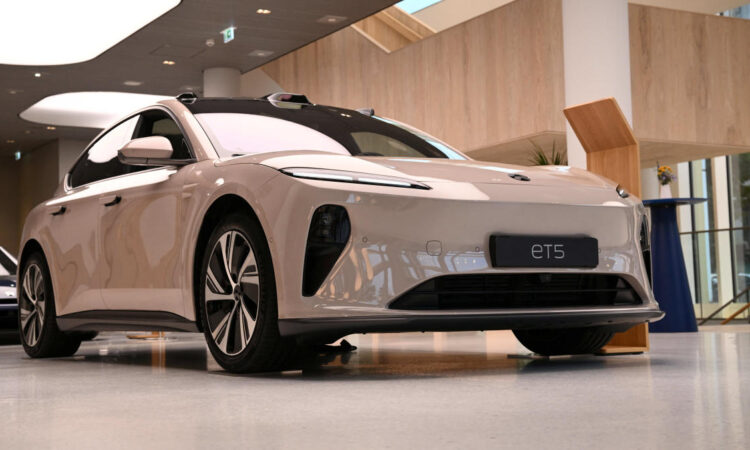
The European Union (EU) has announced that it will impose tariffs of up to 38% on Chinese EV imports beginning on July 4.
Yahoo Finance Autos Reporter Pras Subramanian joins Catalysts to break down the increased tariffs on Chinese EV imports in the EU and what it means for the global autos market moving forward.
For more expert insight and the latest market action, click here to watch this full episode of Catalysts.
This post was written by Nicholas Jacobino
Video Transcript
The European Union announcing it will impose up to 38% tariffs on electric vehicle imports coming from China that’s expected to start on July 4th.
Now this of course, coming a month after the US quadruple its tariffs on Chinese es to 100%.
We spoke to a lot of analysts at the time who said us tariffs wouldn’t have a huge impact on China’s ev sales since there are no Chinese EVs here in the States.
But what about these new Eu duties?
What impact could that have joining us to discuss?
We have our very own pros sub Romanian pros.
That’s the key question.
I want to ask you about how big of a headwind is it to see these tariffs imposed by the EU given that there are Chinese ev sales happening in Europe right now.
Yeah, I mean, I think that you could say that they, the EC the European Commission are kind of dropping the hammer here.
I mean, 38.1% at, at the high mark was more than what was expected.
I think there was a 25% or so.
Uh tariff duty was was expected.
So you know, looking across it’s actually um you know, the, the EC had had discussions with Chinese officials about this and they came to this to this sort of a, a stag uh policy here.
So, so for instance, for B ID cars, it would be a 17.4% tariff uh for GE cars a 20% tariff.
But then on SAS A IC, for instance, 38.1 and if, and if a automaker did not cooperated with the EC on their investigation, they were all stuck at a 38.1% others who cooperated at 21% tariff.
So you see this kind of staggered approach all going into effect July 4th.
Now the EC says that, you know, they can still have an ongoing discussion with Chinese officials and they can sort of uh po potentially lower that or adjust these, these tariffs.
But one interesting automaker Tesla uh petitioned for a kind of an individual rate for their cars coming from China.
So they’re going to do that.
But anyway, more pain here, I think for Chinese EVs in the country uh especially when you consider the fact that other European automakers were saying, hey, if you do this, our cars in China are going to get directly tariff again.
So it’s kind of like an escalation here.
I was gonna say, so what ultimately could that backlash look like?
And, and putting some of these foreign automakers who want to have any sort of presence, more of a presence in China than in a tougher position.
Yeah, definitely.
I mean, a lot of the luxury brands sell their big V eight powered S classes and BM seven series.
Those cars can get tariff heavily if the Chinese are in response and, and ultimately consumers both there and in China kind of worse off and then just real quick, even with, with these tariffs are some of these Chinese vehicles still cheaper than what some of the domestic automakers are offering.
And I guess how much of an impact is it ultimately, at the end of the day, even going to have on some of that demand, I mean, the, the Byd Seal, maybe around 15,000 or so, uh 25% tariffs can only make it 20 grand more.
Right.
It’s only 20 grand total.
So it’s still relatively cheap in the USA 100% tariff would make it, uh a bit more unpalatable.
So you’re absolutely right.
I think it’s potentially the fact that the tariffs may not have that big of an effect.
But if you’re a consumer, it’s 38.1% on S AC cars.
I mean, almost half.
All right, pros, thank you so much for joining us.
Really appreciate it.
That was great.
Thank you so much.






